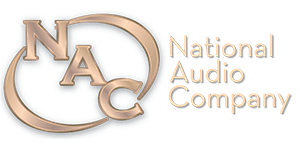National Audio doesn’t recommend that you have Dolby applied if your listeners may not all have Dolby capabilities on their playback devices. If you like the sound of your original master, you don’t need Dolby.
Dolby B for cassettes is intended to reduce tape noise on copied tapes, while leaving the original audio unchanged. It does not fix a sound master with unwanted noise. The original master is run through a Dolby encoder. The encoder basically boosts the upper frequencies while the audio is quiet, and doesn’t boost as much when the audio is loud (relative to a set threshold). The copied tapes are duplicated with this encoding of shifted frequencies. When played back on a deck with Dolby B engaged, the decoder reversed the boosts that were added to the original audio by the Dolby encoder according to the program levels that it senses. The result should be that the original audio sounds unchanged, but the tape noise (most noticeable in the higher frequencies) on the copied tapes has been reduced by almost 10 dB.
Keep in mind that not all players have Dolby encoders and later versions of the original Dolby B also exist. Many pros choose to duplicate their tapes without Dolby encoding for these reasons.

